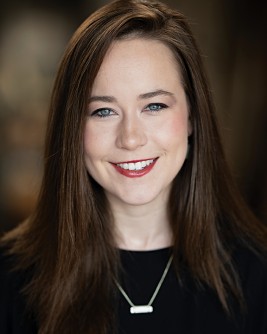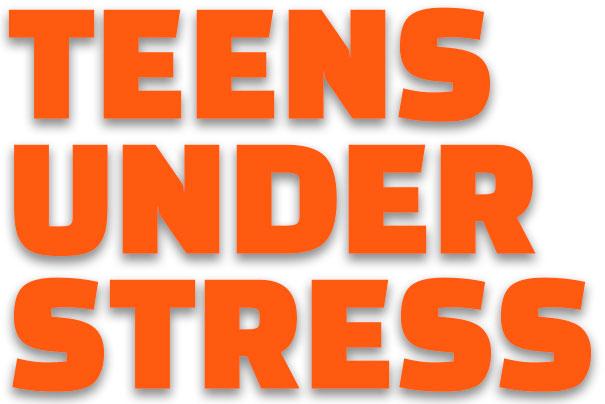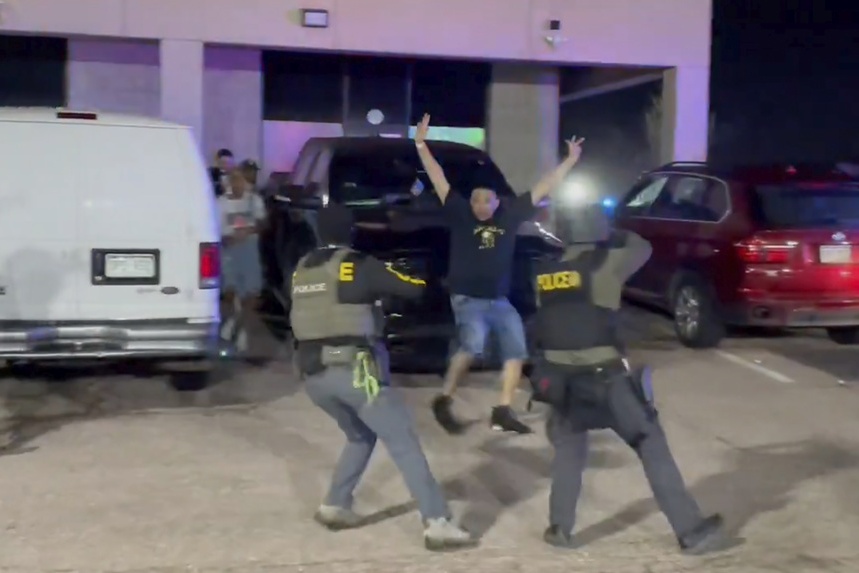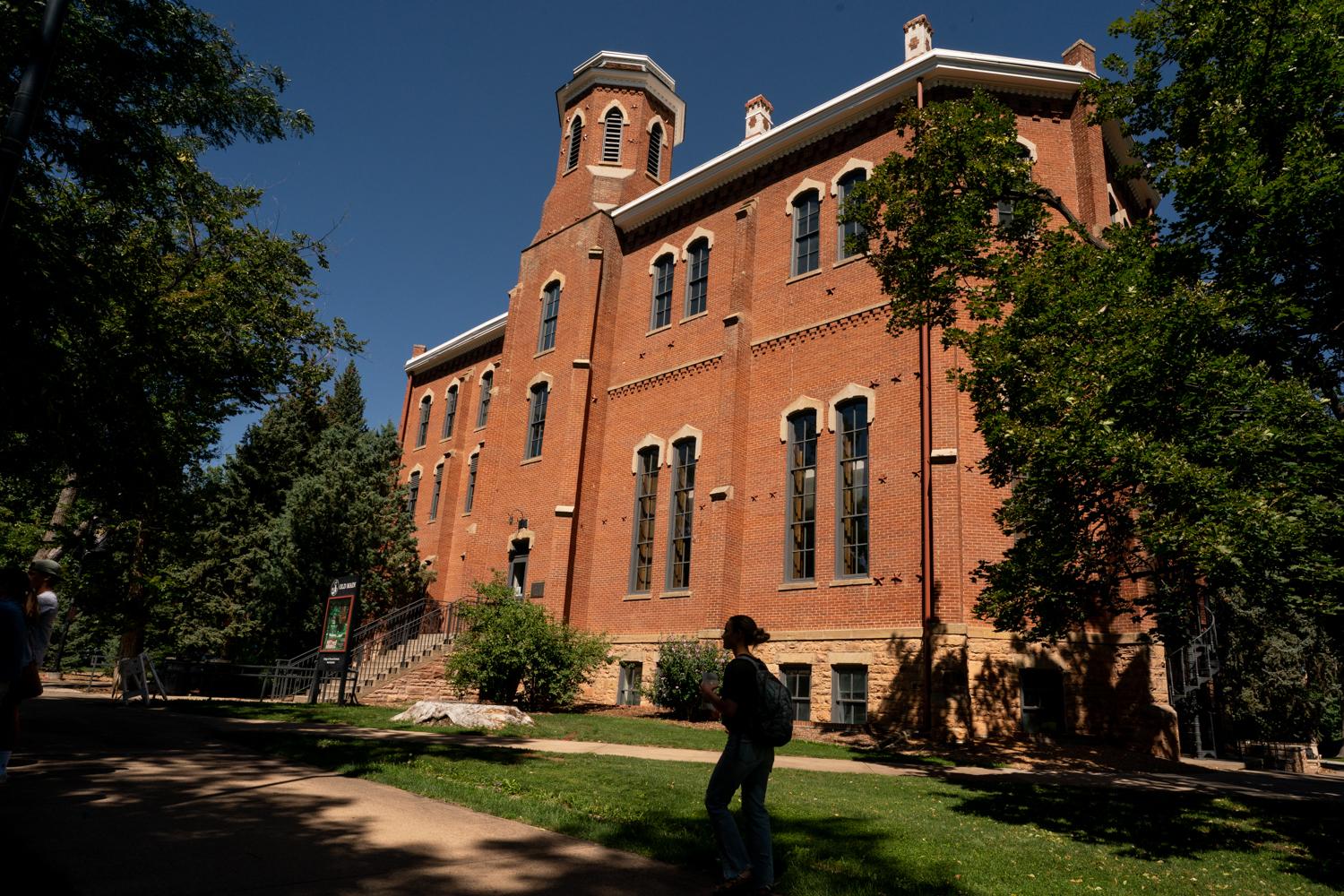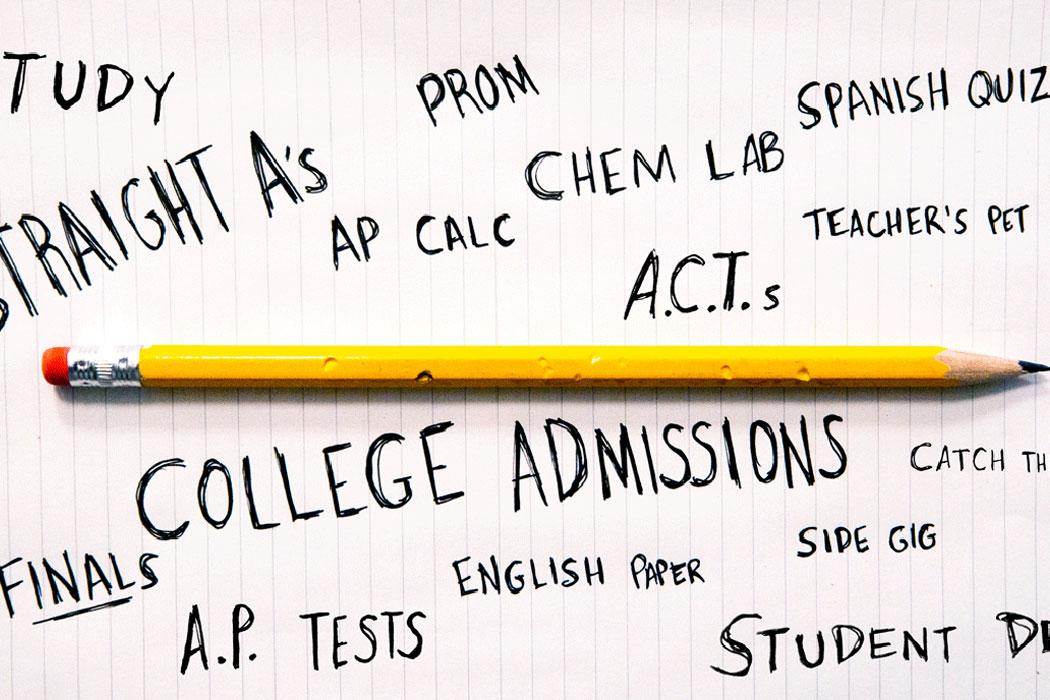
Academic stress is a big deal.
A national survey this year cited school pressure as the number one stressor in teens’ lives. For our ongoing series Teens Under Stress, Colorado Matters host Avery Lill sat down with several high schoolers and teachers to talk about it.
Most of the students said their academic stress is ever-present. One compared it to trying to find something in a sandpit. It’s hard to find what you’re looking for. It’s tough to get out of the pit, and the sand gets all over you.
The teachers know teens are stressed about, as one put it, "everything" — including, sometimes, teachers themselves.
These are select moments from both conversations. They have been condensed and edited for clarity.
The teacher spoke with us first.
Amy Paa-Rogers is from Boulder. She’s taught in public middle and high school for 28 years. She's taught International Baccalaureate classes, Advanced Placement economics and freshman government.
Young Han Lester teaches high school English at a charter school in Denver. He’s been a teacher for six years.
Matt Borgmann teaches history and economics at the IB program in Palisade, Colorado.
Lori Goldstein recently retired after teaching middle and high school science for 29 years. Now she’s on the Adams 12 School Board in Thornton.
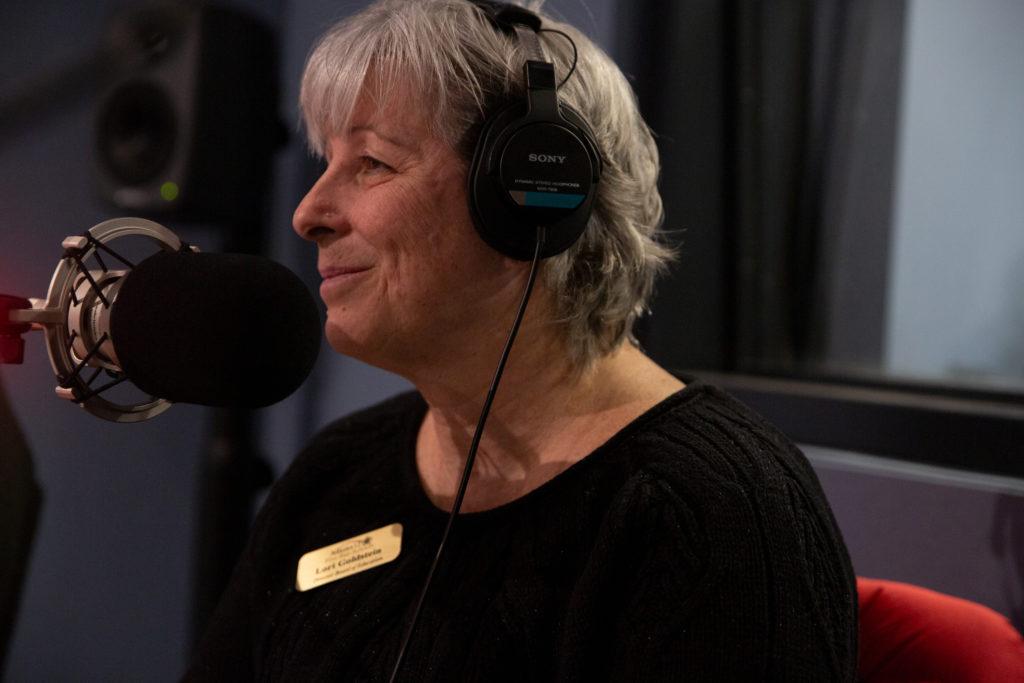
What’s stressing out their students at school?
Borgmann: Can I just say everything? I deal with a lot of 12th graders primarily, and it's just that point in their life where they actually do have to think of life outside of high school. I think the expectations of that creates some pressure for all of them, and in different ways. Some kids are leaving their parents who are willing to just let them go, and so they don't have a lot of guidance. Or (they have) parents that are trying to overly guide them.
Paa-Rogers: Expectations from their friends, from school, from the academics, from teachers, from their parents. I think there's that little triangle of, "My friends, I don't want to let them down, and I chat with them all the time, and I want to make sure that I kind of keep up my image or my persona."
Lester: I would also definitely say, I see students react pretty frequently to just anytime they feel like someone is telling them what to do or how to be. I think that always is a little stressful, trying to meet those kinds of adult commands.
Borgmann: I might not be a fan favorite for this one, but sometimes it's just teachers. Teachers that are not organized, and kind of throw things at kids last minute or, "Oh, it's the end of the semester, we didn't get through this, so let's hurry up and get this done." And a lot of these kids, with so much on the table they're really trying to plan things out. They're trying to be organized, and you just have so many factors that are outside of their control that contribute to them being unorganized.
Goldstein: I think that you have a sense of competitiveness too. You have on one end the low socioeconomic (students) … you have the high (socioeconomic students), and you have that friction between the two populations — basically the haves and the have-nots. And then thinking about, "Well, what am I going to do when I get out of high school? Am I going to be able to afford to go to college? Am I going to be able to get into college because I'm DACA?" and that sort of thing.
Paa-Rogers: Or, "If I get in and I can't pay, then how do I save face in front of my friends?"
In looking at this over time, it seems like in more recent years it's almost like they don't want to ask for an extension on a due date, especially the really high-achieving kids that are doing the AP and IB classes. It makes me sad because it's like they've internalized the stress so much that they don't feel like they can ask for help. Like the healthy thing for you to do is maybe not do the assignment. Try missing those 10 points and just see what that does. It's going to be fine.
That part has changed a lot, that they're afraid of failing. I think that's a bigger picture of our society of how everything is public because you put everything out on Facebook or Snapchat or wherever.
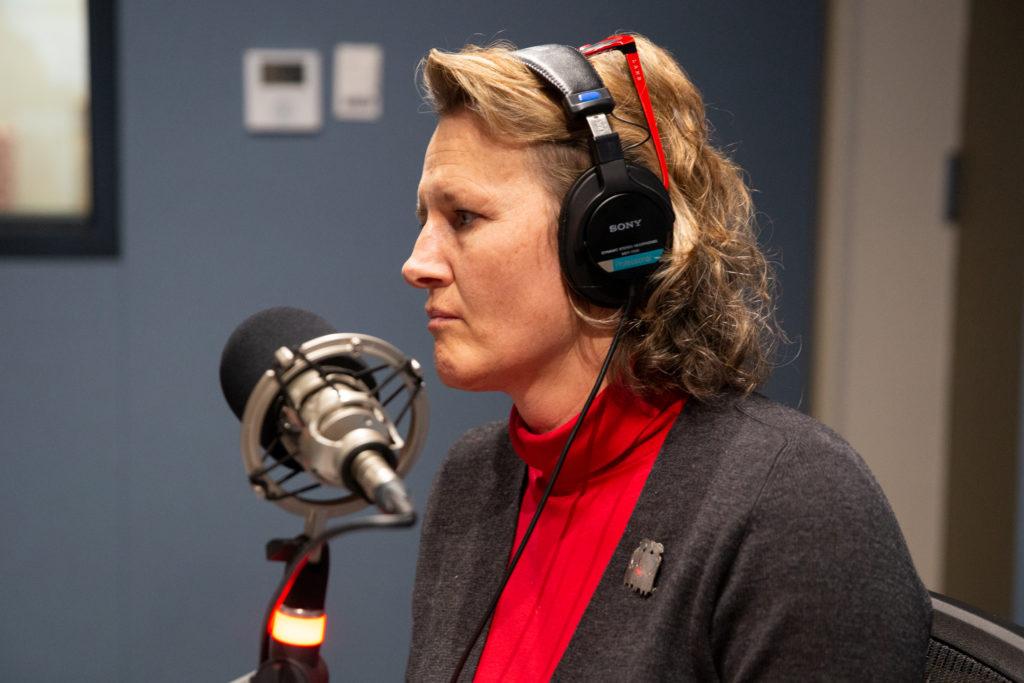
How students’ background, race or ethnicity, and identity affect the way they experience academic stress.
Lester: I teach at a school where I'm pretty sure the majority of our teachers are white and the majority of our students are not. And I do think that causes some stress for the students. From kindergarten through 12th grade, if the majority of the people with power, the people presenting themselves as your guides for the future, if those do not reflect you, there's a lot of ways that can cause stress.
(It can leave students wondering), "Should I really assume this person actually does know what they're talking about? Sure, this works for them. Does it work for me? Can I trust this person's motives when they tell me that I need to change my behavior, that I should change my attitude? Are they actually doing that because that is what is best for me or are they doing this because they're doing what authority always does to me?"
Borgmann: My mind first went to our athletes. I think about a kid who has always been kind of the athlete and nobody recruits them (for college sports). How do you turn around and tell your peers like, "Oh, well actually, nobody wants me."
And I don't think it's any different for academic kids. You know, they've always been top of the class and they want to get into these schools and then they get a letter that says, "No, thanks." What do I put on my Snapchat? What do I put on my social media? Who do I tell, who do I not tell, and how am I going to handle that?

So what’s a teacher to do? How do you help kids manage academic stress?
Goldstein: I think it's important in any system that every student has at least one adult in that building that they can connect with to guide them, whether it's going to college or with dealing with the stresses at home or with your peers.
Lester: I think a lot of behaviors that are really easy to write off as misbehavior are really, actually, student stress responses. So a lot of the time whenever I find myself being tempted to think, "Why aren't they trying harder?" or, "Why are they acting out?" I try and kind of stop and wonder, what are the circumstances that make this behavior adaptive? Because this is this person's attempt to solve whatever they perceive as the problem in their life.
Paa-Rogers: I try to establish individual relationships with kids. And a lot of times the kids in my class that are like super stressed will sort of self-identify and send me an email or stop by my office. And in some sense, that's really helpful because then I can work with them or adjust due dates or things like that. But sometimes kids keep so much inside that you can't really tell. I try to be flexible, try to be approachable. Sometimes we do a little mindfulness stuff.
Borgmann: I'll second what was said about relationships. I think that's the number one thing.
If you need help, dial 988 to reach the Suicide and Crisis Lifeline. You can also reach the Colorado Crisis Services hotline at 1-844-493-8255 or text “TALK” to 38255 to speak with a trained counselor or professional. Counselors are also available at walk-in locations or online to chat.
Then the teachers left the studio and the teens took their place.
Kyler is a high school senior at a Boulder public school.
Paola is a junior. She’s also from Boulder, but goes to a different public school than Kyler.
Liliana is a senior in Palisade on the state’s Western Slope. Matt Borgmann is her teacher. She’s in an International Baccalaureate program.
Rodrigo is a junior at the charter school in Denver where Young Han Lester teaches.
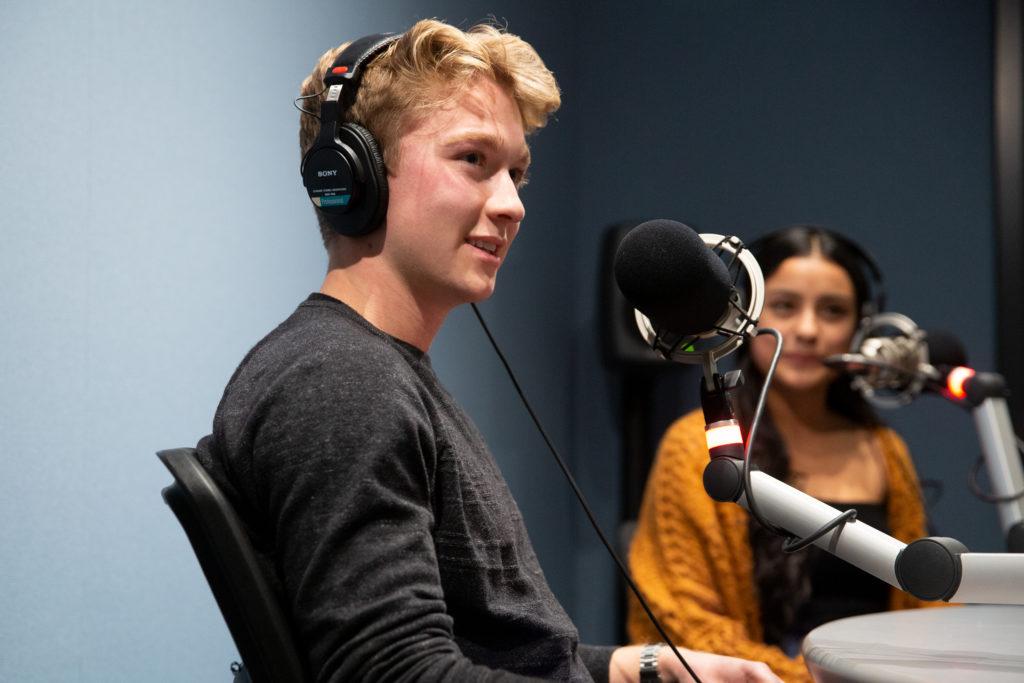
How did the teachers do in describing their academic stress and its causes?
Kyler: I feel like they did a pretty good job. Personally, for me, the rigor of the class is that it's necessary for there to be stress and it's necessary for there to be hard tests and stuff like that. Especially (what the teachers said) about the need to communicate with the students. I full-heartedly believe that, because having a connection with your teacher and being able to communicate is really vital in reducing the amount of stress.
Paola: Just building off of that point, self-advocacy is definitely a stress reliever. Just having that connection with that teacher, and being able to directly go without hesitation, is just so much better. Knowing that the teacher will be able to help you is a stress reliever for me.
When you visualize stress, what does it look like?
Paola: My stress visualization would probably be like a ball of just elastics. It's like all munched together and kind of intertwined between each other.
Liliana: Visualizing wise, maybe like a pit of sand, you know? You try and find something in there, but you don't know where it is and it's hard to get out and it's always stuck to you, I guess.
I will say there's physical manifestations of it. Like my shoulders are always tight, my jaw is always clenched. Sometimes you forget that it's there and you forget that that stress is there, but it's still with you. And you know, sometimes you notice it and try and release it, and it just doesn't work. Then you can't stop thinking about it. And then there are other moments where, you know, you just kind of forget that your shoulders are tight and that your jaw is clenched until you end up with a migraine.
It's hard for some students to detach themselves from persona and social media and all the things that we have to deal with. And I think teachers are getting better and better at understanding that, because that's not something that really almost any of them grew up with.
Rodrigo: Academic stress is like the “Jaws” theme. It just happens, and then once I pay attention, it's kind of too late. A lot of times I'll put it off like, "Oh, I have time to catch up on my homework," and then I will procrastinate for a month. And then once it actually hits me, "Oh yeah, this is due tomorrow," so I will do it the night before. And it's not the best thing.
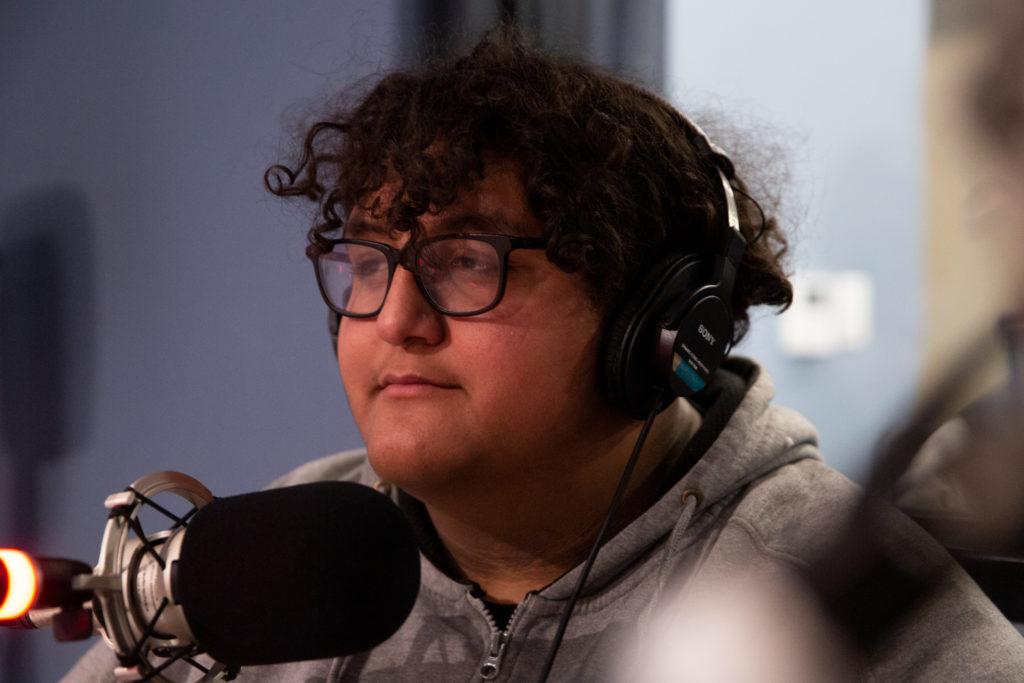
What kind of extracurriculars are you involved in?
Liliana: There are some basics like National Honor Society. We have a Future Business Leaders of America chapter. I'm involved in marching band. I'm doing choreography for our musical, I work on quite a few political campaigns and I'm the chair of a voter registration organization here on the Western Slope.
(She gets four or five hours of sleep a night.) I know that sometimes sacrificing my health is not the best thing to do, but it needs to be done for me to uphold the responsibilities that I've committed myself to.
Rodrigo: I'm part of National Honor Society. I am not part of any clubs or anything. I held down a job for half of my years of high school. I probably did one of the major flaws you're not supposed to do — I prioritized work over school, so I’d work a few hours and then go home tired and fall asleep immediately, not do homework, and then be confused in class.

How do race and ethnicity, socioeconomics and identity affect stress at school?
Paola: My school is predominantly white and sometimes it is kind of hard going into class realizing that you are the only student of color. So like one of the teachers mentioned, minorities need more role models they can actually connect to in order to succeed.
Liliana: In kindergarten through now, I have never had a teacher of color, especially those of my own (Hispanic) ethnicity, other than a Spanish teacher. It has definitely affected me. I think that definitely some stress comes from not seeing teachers who look like me and who have had similar cultural experiences to me.
Rodrigo: I got to agree with that. I come from a single-parent household. My mom did come to this country when she was about 20 and she doesn't have a full high school education. She did leave high school in Mexico. So education-wise, there is such a big disconnect. Because in the United States, we're taught different things based on how much money your school is getting. And I’ve noticed that pretty commonly when I was super young. I went to schools that weren’t really funded, right? Teachers were there just to be glorified babysitters.
